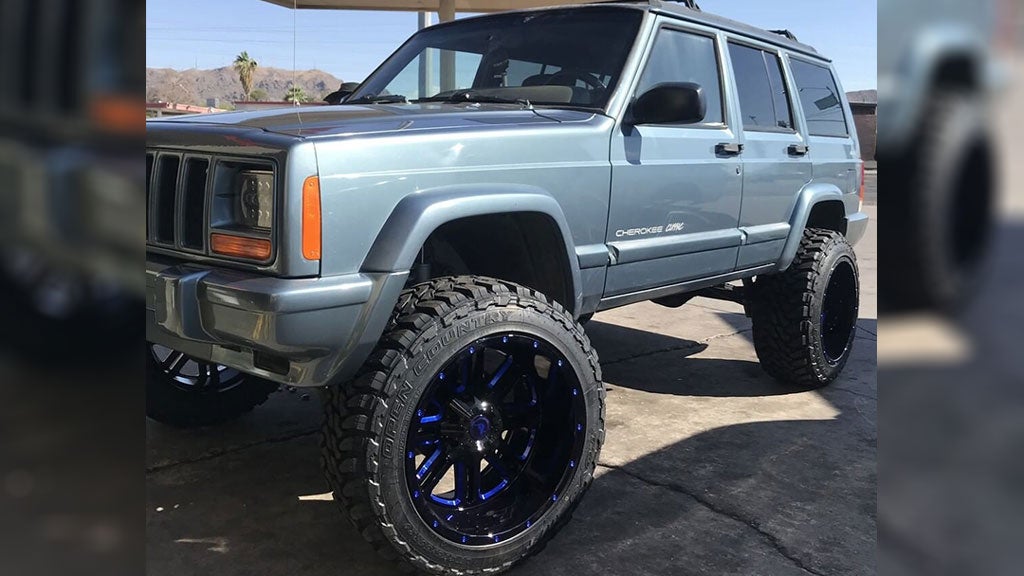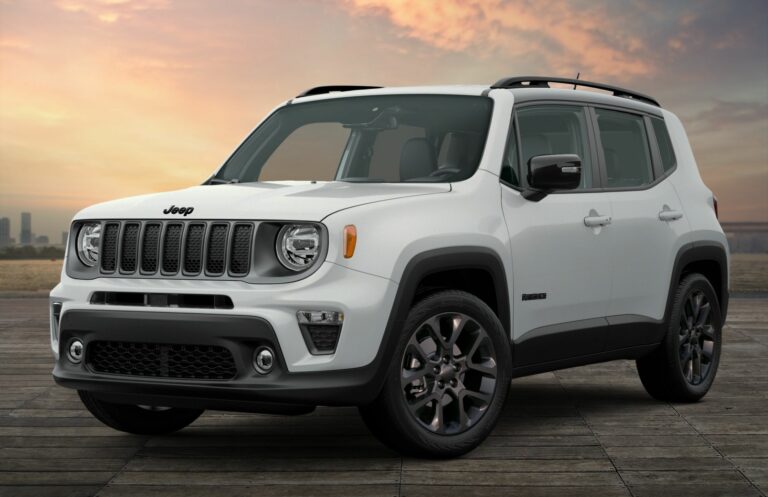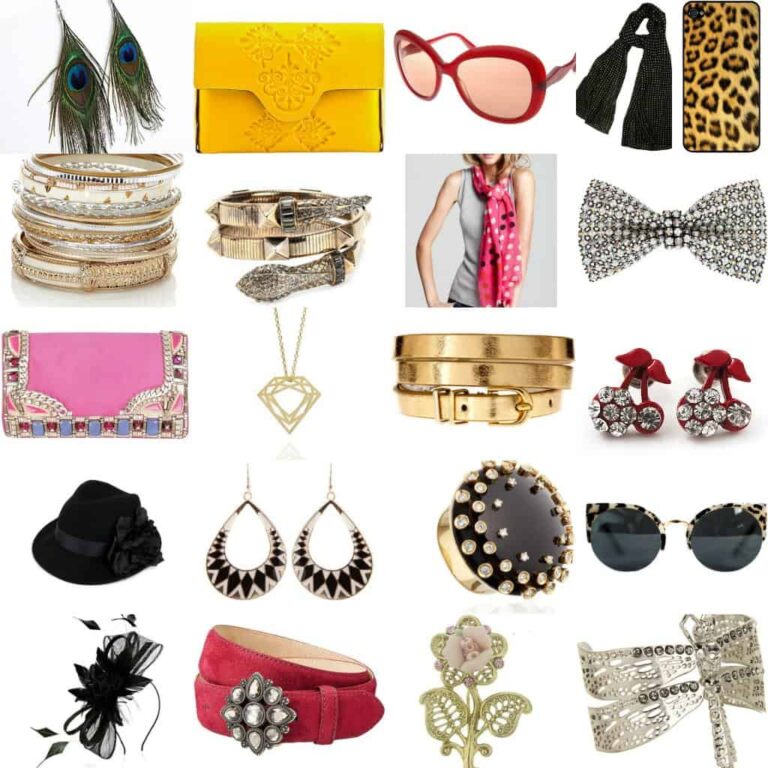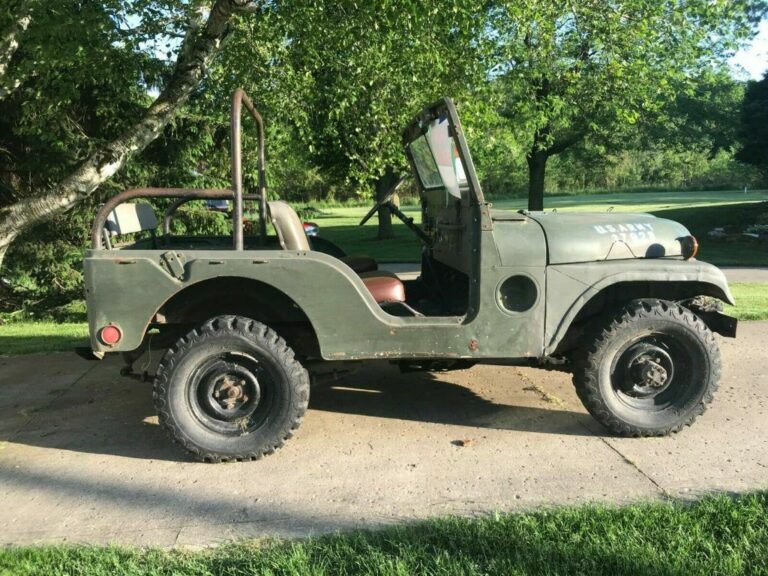Jeep Cherokee Wheels: A Comprehensive Guide to Performance, Style, and Functionality
Jeep Cherokee Wheels: A Comprehensive Guide to Performance, Style, and Functionality jeeps.truckstrend.com
The Jeep Cherokee, an iconic nameplate in the SUV world, has graced roads and trails for decades, evolving from its rugged, utilitarian roots to a more refined yet still capable modern vehicle. While its engine, transmission, and suspension are often the focus of performance discussions, the wheels play an equally critical, though sometimes overlooked, role in defining its character, performance, and safety. Far more than mere aesthetic accessories, the right set of wheels can dramatically impact your Cherokee’s handling, off-road prowess, fuel efficiency, and overall driving experience.
This comprehensive guide delves into the intricate world of Jeep Cherokee wheels, exploring their specifications, types, the critical factors to consider when choosing them, and essential maintenance practices. Whether you’re a seasoned off-roader, a daily commuter, or simply looking to refresh your Cherokee’s appearance, understanding your wheels is the first step to unlocking its full potential.
Jeep Cherokee Wheels: A Comprehensive Guide to Performance, Style, and Functionality
Understanding Jeep Cherokee Wheel Specifications: The Foundation
To make informed decisions about your Jeep Cherokee’s wheels, it’s crucial to grasp the fundamental specifications that dictate compatibility and performance.
- Diameter (Size): Measured in inches (e.g., 15", 17", 20"), this refers to the wheel’s overall height. Larger diameters often mean less tire sidewall, potentially offering sharper handling but a harsher ride. Smaller diameters typically allow for more tire sidewall, crucial for off-roading as it provides more cushion and allows for lower tire pressures for increased traction.
- Width: Also measured in inches (e.g., 7", 8"), the width of the wheel must be appropriate for the tire you intend to mount. An incorrect width can lead to improper tire bead seating, poor handling, and accelerated tire wear.
- Bolt Pattern (PCD – Pitch Circle Diameter): This is arguably the most critical compatibility factor. It describes the number of lug holes and the diameter of the imaginary circle on which they are centered. For Jeep Cherokees, the bolt pattern has varied significantly across generations:
- Jeep Cherokee XJ (1984-2001): 5×4.5 inches (or 5×114.3mm)
- Jeep Liberty KJ (2002-2007) & KK (2008-2012): 5×4.5 inches (or 5×114.3mm)
- Jeep Cherokee KL (2014-Present): 5×5 inches (or 5x127mm)
- Mismatched bolt patterns will not fit, or worse, can lead to dangerous situations if forced.
- Offset (ET): Measured in millimeters, offset is the distance from the wheel’s mounting surface (where it bolts to the hub) to its true centerline.

- Positive Offset: The mounting surface is towards the front (outboard) of the wheel’s centerline. Wheels tuck further into the fender.
- Zero Offset: The mounting surface is exactly at the wheel’s centerline.
- Negative Offset: The mounting surface is towards the back (inboard) of the wheel’s centerline. Wheels stick out from the fender, creating a wider stance.
- Offset dramatically affects tire clearance, suspension component clearance, and the vehicle’s track width. Incorrect offset can cause rubbing, premature bearing wear, and affect steering geometry.

- Backspacing: Often used in the off-road community, backspacing is the distance from the wheel’s inner lip to its mounting surface. It’s directly related to offset and helps determine how far inward the wheel and tire assembly will sit.
- Center Bore: This is the hole in the center of the wheel that fits over the vehicle’s hub.
- Hub-centric: The wheel’s center bore perfectly matches the hub, ensuring the wheel is precisely centered by the hub.
- Lug-centric: The wheel’s center bore is larger than the hub, meaning the lug nuts center the wheel. While common, hub-centric designs are preferred for minimizing vibrations and ensuring proper fitment. If you have lug-centric wheels with a larger center bore, hub-centric rings are highly recommended to fill the gap and ensure proper centering.
Types of Wheels for Your Jeep Cherokee
Jeep Cherokee wheels are primarily categorized by the material they are made from and their origin.
By Material:
- Steel Wheels:
- Pros: Highly durable, very affordable, easily repaired (can often be hammered back into shape after impact), excellent for heavy-duty off-roading and rock crawling.
- Cons: Significantly heavier than alloy wheels (impacting fuel economy and unsprung weight), limited aesthetic options, prone to rust if not properly maintained.
- Alloy (Aluminum) Wheels:
- Pros: Lighter weight (reduces unsprung weight, improving handling, acceleration, braking, and potentially fuel economy), vast array of aesthetic designs and finishes, better heat dissipation for brakes, corrosion resistant (though can oxidize if finish is damaged).
- Cons: More expensive than steel, can crack or bend more easily on severe impacts (especially cast alloys), more difficult and costly to repair than steel.
- Sub-types: Cast (most common, affordable), Flow-Formed/Rotary Forged (stronger, lighter than cast), Forged (lightest, strongest, most expensive).
By Origin:
- OEM (Original Equipment Manufacturer) Wheels: These are the wheels that came with your Jeep Cherokee from the factory or are direct replacements from Jeep.
- Pros: Guaranteed perfect fitment, designed to work seamlessly with your vehicle’s suspension and braking system, reliable quality.
- Cons: Limited design choices, can be quite expensive when purchased new, often heavier than performance-oriented aftermarket options.
- Aftermarket Wheels: Produced by independent manufacturers, these wheels offer an enormous range of designs, finishes, sizes, and performance characteristics.
- Pros: Unparalleled customization options, can improve performance (lighter weight, specific offsets for larger tires), competitive pricing across various tiers.
- Cons: Quality can vary significantly, requires careful research to ensure proper fitment (bolt pattern, offset, center bore), some designs may not be as durable as OEM for specific uses.
Choosing the Right Wheels for Your Jeep Cherokee: A Step-by-Step Guide
Selecting the perfect wheels for your Cherokee involves more than just picking a design you like. It requires a thoughtful approach considering your vehicle’s specific needs and your driving habits.
- Identify Your Cherokee Generation: As highlighted earlier, this is paramount for determining the correct bolt pattern. Whether you drive an XJ, KJ, KK, or KL, this fundamental piece of information dictates your initial wheel search.
- Determine Your Primary Use:
- Daily Driver/Street Use: Focus on aesthetics, comfort, and perhaps lighter alloy wheels for better fuel economy and handling.
- Off-Roading (Mild to Moderate): Durability, tire sidewall (smaller diameter wheels), and appropriate offset for tire clearance become key. Steel or strong cast alloy wheels are good choices.
- Extreme Off-Roading/Rock Crawling: Prioritize strength, repairability (steel wheels shine here), and potentially beadlock-capable wheels for running very low tire pressures.
- Performance/Sporty Driving (e.g., KL Trailhawk upgrades): Lighter forged or flow-formed alloy wheels to reduce unsprung weight, improving acceleration, braking, and handling responsiveness.
- Consider Tire Size and Suspension Modifications: If you plan to run larger-than-stock tires (common for off-roaders), you will likely need a lift kit and specific wheel offsets/backspacing to prevent rubbing against fenders or suspension components. Research recommended wheel and tire combinations for your specific lift height.
- Research Bolt Pattern, Offset, and Center Bore: Once you know your vehicle’s specs, stick to them. If you’re changing tire size, carefully calculate the required offset to maintain clearance. Use online wheel calculators as a guide, but always double-check with a reputable wheel or tire shop.
- Set Your Budget: Wheel prices vary wildly. Having a budget in mind will help narrow down your options from the vast aftermarket. Remember to factor in the cost of tires, installation, balancing, and potentially new lug nuts or TPMS sensors.
- Balance Aesthetics with Functionality: While a wheel’s appearance is important, never compromise on safety and functionality. Ensure the wheels you choose are rated for your vehicle’s weight and intended use.
Installation and Maintenance of Jeep Cherokee Wheels
Proper installation and regular maintenance are crucial for the longevity, safety, and performance of your Jeep Cherokee’s wheels and tires.
- Safe Installation Practices:
- Always use a reliable jack and jack stands on a level surface.
- Ensure mating surfaces on the wheel and hub are clean and free of rust or debris.
- Use the correct type of lug nuts for your wheels (conical, spherical, or flat seats vary).
- Torque Wrench is Essential: Always tighten lug nuts to the manufacturer’s specified torque settings (found in your owner’s manual) in a star pattern. Overtightening can stretch studs, while undertightening can lead to loose wheels.
- Re-torque: After driving 50-100 miles on newly installed wheels, re-torque the lug nuts. This accounts for any initial settling.
- Regular Maintenance:
- Cleaning: Regularly wash your wheels with appropriate wheel cleaners to remove brake dust, dirt, and road grime, which can corrode finishes. Avoid harsh chemicals that can damage clear coats.
- Inspection: Periodically check your wheels for any signs of damage such as cracks, bends, dings, or excessive corrosion, especially after hitting potholes or off-roading.
- Tire Rotation: Follow your vehicle’s recommended tire rotation schedule (typically every 5,000-7,500 miles) to ensure even tire wear and extend their lifespan.
- Balancing and Alignment: If you experience vibrations or uneven tire wear, have your wheels professionally balanced and your vehicle’s alignment checked. Proper balancing prevents vibrations, and correct alignment ensures straight tracking and optimal tire wear.
Benefits of Upgrading Your Jeep Cherokee Wheels
Upgrading your Jeep Cherokee’s wheels offers a myriad of benefits beyond just a new look:
- Enhanced Aesthetics: This is often the primary motivator. Aftermarket wheels offer endless styles, finishes, and colors, allowing you to personalize your Cherokee and make it truly unique.
- Improved Off-Road Capability: Stronger materials, specific offsets that improve articulation, and the ability to accommodate larger, more aggressive tires significantly boost your Cherokee’s off-road prowess. Beadlock-capable wheels are particularly beneficial for extreme low-pressure off-roading.
- Performance Improvements: Lighter alloy wheels reduce unsprung weight (the weight not supported by the suspension), leading to quicker acceleration, more responsive braking, and sharper handling. This can also marginally improve fuel efficiency.
- Accommodation of Larger Tires: For many Jeep enthusiasts, larger tires are a must for increased ground clearance and traction. New wheels are often required to properly fit these larger tires, especially concerning width and offset.
Potential Challenges and Solutions
While upgrading wheels offers many benefits, there are common pitfalls to be aware of:
- Rubbing Issues: The most frequent problem when upsizing tires or changing offset.
- Solution: Carefully research recommended wheel and tire sizes for your specific Jeep generation and any lift kit. Adjusting offset, adding fender flares, or minor fender trimming might be necessary.
- Incorrect Fitment (Bolt Pattern/Center Bore): Attempting to force a wheel with an incorrect bolt pattern is extremely dangerous.
- Solution: Always double-check your Jeep’s bolt pattern before purchasing. If the wheel’s center bore is larger than your hub, use hub-centric rings to ensure proper centering and prevent vibrations. Wheel adapters/spacers can change bolt patterns or push wheels out, but their use requires careful consideration of safety and local regulations.
- Weight Penalty: Larger, heavier wheels (especially steel) can negatively impact fuel economy, acceleration, and put more strain on suspension components.
- Solution: Consider lighter alloy options if performance and fuel economy are priorities. Accept the trade-off if maximum durability (e.g., steel for rock crawling) is your goal.
- TPMS (Tire Pressure Monitoring System) Compatibility: Modern Cherokees have TPMS.
- Solution: Ensure your new wheels can accommodate your existing TPMS sensors, or budget for new compatible sensors to be installed.
Jeep Cherokee Wheels Price Guide (Estimated)
The cost of Jeep Cherokee wheels varies significantly based on brand, material, manufacturing process, size, finish, and whether they are new or used. The following table provides a general estimated price range per wheel.
| Wheel Type | Typical Size Range (Diameter) | Estimated Price Per Wheel (USD) | Key Characteristics/Notes |
|---|---|---|---|
| OEM (Used/Refurbished) | 15" – 20" | $75 – $300 | Factory fit and finish, often good value used. Styles vary by generation. Great for direct replacements or maintaining original look. |
| OEM (New) | 15" – 20" | $200 – $600+ | Direct from manufacturer or dealer, guaranteed fit and quality. Can be expensive. |
| Aftermarket Steel | 15" – 17" | $60 – $150 | Durable, affordable, heavy. Ideal for serious off-roading where strength and repairability are key. Limited aesthetic options, often black. |
| Aftermarket Alloy (Budget/Cast) | 15" – 20" | $100 – $250 | Basic designs, cast aluminum, good for general upgrades over steel or worn OEM. Quality can vary; research reputable brands. |
| Aftermarket Alloy (Mid-Range/Cast) | 16" – 20" | $250 – $450 | More diverse designs, better finishes, often slightly lighter. Popular choice for a balance of looks and performance. Many well-known brands fall into this category. |
| Aftermarket Alloy (Premium/Flow-Formed/Forged) | 17" – 20"+ | $450 – $1000+ | Advanced manufacturing techniques result in lighter weight, higher strength, and unique designs. For enthusiasts seeking top-tier performance and aesthetics. |
| Beadlock/Beadlock Capable | 15" – 17" | $250 – $800+ | Specialized for extreme off-roading, designed to physically clamp the tire bead for very low air pressures. Often heavier-duty construction. Not street-legal in all areas. |
Disclaimer: These are estimated prices per wheel and do not include tires, installation, balancing, or TPMS sensors, which will add to the total cost.
Frequently Asked Questions (FAQ)
Q: What is the bolt pattern for my Jeep Cherokee?
A: This depends on your Cherokee’s generation:
- XJ, KJ (Liberty), KK (Liberty): 5×4.5 inches (5×114.3mm)
- KL (2014-Present): 5×5 inches (5x127mm)
Always double-check your specific model year in your owner’s manual or by measuring.
Q: Can I put bigger wheels and tires on my Jeep Cherokee?
A: Yes, it’s a common modification. However, going significantly larger than stock usually requires a suspension lift kit to prevent rubbing. You’ll also need to carefully select wheels with the correct offset and width for your chosen tire size.
Q: What’s the main difference between steel and alloy wheels?
A: Steel wheels are heavier, more durable for impacts (can be bent back), and more affordable. Alloy wheels are lighter (improving performance), offer many more aesthetic designs, dissipate heat better, but are generally more expensive and can crack on severe impacts.
Q: What is "offset" and why is it important for my Cherokee?
A: Offset is how far the wheel’s mounting surface is from its centerline. It determines how far the wheel and tire assembly will stick out or tuck into the fender well. Correct offset is crucial for preventing tires from rubbing on suspension components or fender liners, and it also affects your vehicle’s stance and handling.
Q: Do I need hub-centric rings for aftermarket wheels?
A: If your aftermarket wheels have a larger center bore than your Jeep’s hub, hub-centric rings are highly recommended. They ensure the wheel is perfectly centered on the hub, preventing vibrations and ensuring proper load distribution, even if your lug nuts are designed to center the wheel.
Q: How often should I re-torque my lug nuts?
A: After installing new wheels or having your tires rotated, re-torque your lug nuts after driving 50-100 miles. Beyond that, it’s good practice to check them periodically, especially after off-roading or if you’ve recently had a flat tire or brake work.
Conclusion
Jeep Cherokee wheels are more than just functional components; they are integral to the vehicle’s identity, performance, and your driving experience. From navigating rugged trails to cruising city streets, the right set of wheels enhances safety, improves handling, and allows for personalized expression. By understanding the critical specifications, exploring the various types available, and making informed choices based on your Cherokee’s generation and intended use, you can unlock its full potential.
Investing in the right wheels is an investment in your Jeep Cherokee’s future, ensuring it looks great, performs optimally, and continues to deliver the legendary capability and adventure for which it is renowned. With careful research and proper maintenance, your wheels will reliably carry you on countless journeys, making every drive an experience to remember.







